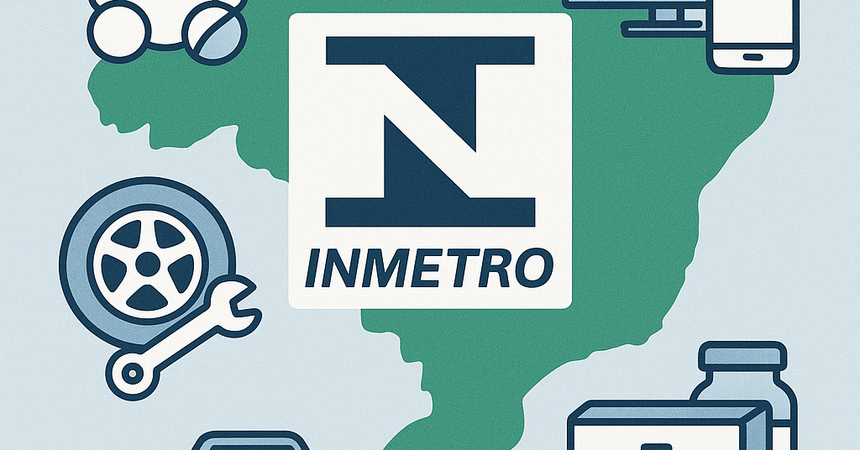Brazil is one of the largest and most promising markets in Latin America. However, alongside its opportunities lies a serious challenge: the high prevalence of counterfeit products. Fakes are found everywhere — from toys and consumer electronics to automotive parts and medical devices. For foreign companies, this means not only financial losses but also damage to brand reputation: consumers who buy a poor-quality imitation often blame the brand itself.
The certification system regulated by INMETRO (Instituto Nacional de Metrologia, Qualidade e Tecnologia) serves a dual purpose: it ensures product safety while also acting as a barrier against counterfeits.
Why Counterfeiting Is Such a Problem in Brazil
- Large market: With a population of over 210 million, the country is attractive to “grey” suppliers.
- High import duties: Smugglers and illegal manufacturers exploit them to sell cheap copies.
- Diverse sales channels: From street markets to online platforms, where fakes can easily be disguised as originals.
How Certification Helps Combat Counterfeits
1. INMETRO Mark as a Sign of AuthenticityEach certified product receives a special logo and a unique registration number — essentially a “product passport.” This number can be verified through INMETRO’s database, allowing customers and distributors to confirm product legitimacy.
2. Supply Chain Transparency
Certification requires the presence of a local representative or importer in Brazil. This makes it much harder for “grey” operators to register and sell their products legally.
3. Regular Market Inspections
INMETRO, together with tax and customs authorities, conducts inspections in warehouses, stores, and at the country’s borders. Products without proper labeling are seized, and companies face fines — adding an extra layer of protection for brands.
4. Technical Barriers to Counterfeits
Counterfeit products rarely meet safety requirements — failing tests for electrical safety, EMC, or resistance to Brazil’s often extreme climate (with humidity levels reaching 100%). Certification proves that a product is safe, and non-compliant fakes are quickly filtered out.
What It Means for Foreign Companies
1. Brand and Reputation ProtectionINMETRO-labeled products are easily distinguished from counterfeits. This builds consumer trust and reduces the risk of brand association with poor quality.
2. Legal Basis for Protecting Interests
The INMETRO certificate is an official document that can be used in legal disputes with competitors or when counterfeit products are identified.
3. Access to Major Sales Channels
Brazilian retail chains, distributors, and government agencies require certified products. Without INMETRO labeling, products simply won’t make it to the shelves.
4. Barrier to Parallel Imports
Even if a counterfeit product enters the country, it cannot be legally sold through official distribution channels.
5. Increased International Trust
Brazil is known for its strict regulations. Having INMETRO certification adds credibility to your brand and helps when expanding into other Latin American markets.
Common Mistakes Foreign Manufacturers Make
- Failing to translate all documentation and instructions into Portuguese.
- Attempting certification without a local representative (which is impossible).
- Cutting corners on testing — submitting incomplete reports or foreign test results not accepted by INMETRO.
- Labeling errors — such as missing certificate numbers or incorrect logos.
Conclusion
Certification in Brazil is not just a formality — it’s a powerful tool against counterfeiting. It helps foreign companies protect their brand, strengthen consumer trust, and secure stable access to one of the region’s largest markets. In a country where counterfeit goods still make up a significant share of sales, INMETRO becomes a crucial ally for legitimate business.Contact WorldWideBridge — we know how to streamline the certification process in Brazil so your products are protected from counterfeits and officially recognized nationwide.
